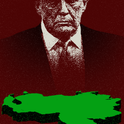On the day of our greatest loss of life in Afghanistan, I was talking to a very senior British Army officer about improvised explosive devices and I asked the question: "In order to reduce the deaths of British soldiers, do you need better equipment?" His answer—and his job is to deal with just this problem—was short and to the point: "You could give me a main battle tank and in the end it would make no difference, because they would just use a larger charge."
In the evolutionary arms race that is the Afghan counter-insurgency, according to him and both his superiors and subordinates with whom I spoke that day, the single greatest cause of deaths in Afghanistan in the medium and long term is the lack of troops on the ground.
The example he used to illustrate this is as follows. The detonators on IEDs have for some time been similar to the movement sensors used on everyday household burglar alarms. The first in a convoy of vehicles would trigger the sensor and the charge would detonate punching through the armour with the molten copper pressure mechanism which was developed some time ago (and which can pierce the hide of the Challenger II tank given sufficient primer behind it). So an ECM (Electronic Counter Measure) was developed to deal with this that would disrupt the device before the vehicle was within effective range. The counter-measure to the counter-measure was swift in development and deadly in effect: someone simply runs a copper wire out of the device for half a kilometre and sits behind a rock waiting for the convoy of armoured personnel carriers to arrive.
So, what is the counter-measure to that? The only answer is to know where the bomb is before it is detonated. And how does one do that? Well, a short term solution is to divert satellites and then run complicated difference algorithms with supercomputers to spot changes in landscape features. Or, and this is far, far cheaper in the medium and long term, put more troops on the ground. Then you would have the tangible benefit of having more 'bobbies on the beat' but - infinitely more importantly - local intelligence would be more forthcoming.
At the moment, when a British patrol encounters resistance it calls in air-support and engages the enemy and invariably wins the contest. Training and technology will always defeat hashish-addled courage. However, they then declare victory and depart, leaving the locals at the tender mercies of the Taliban and their Al-Qaeda auxiliaries. This doesn’t exactly win “hearts and minds.”
And make no mistake, despite media misgivings, “hearts and minds” can be won. Although the villagers of Helmand may not share the liberal democratic views of the West, they are a vicar's tea-party compared to the insurgents. The fact is that the Taliban are a nihilist Death-cult bent on dragging Afghanistan back into the stone-age and are cynically aided in this by Al-Qaeda who need a training ground for their dreams of restoring the Caliphate.
However, as Britain wanders further into economic crisis, a long term commitment to raise troop numbers is not only financially difficult but requires something of a rethink about who we are as a nation.
Since the loss of the Soviet Union as a justification for our defence budget, government after government has seen the Armed Forces as a ‘rainy day fund' and they have all been betting on clear weather. Apparently the fastest route to political success today is to talk about schools, trains and health service waiting lists, because talking about national security and the fact that 9/11 not only did happen but has been attempted again, smells of militarism or, even worse, Americanism.
It seems that as a nation we are not unhappy with the idea of actually being under threat, merely with thinking ourselves as important enough to be under threat. And we are even more unhappy blaming other people - from within or without - for posing that threat.
There are reasons for this, and the strongest of all of these was the invasion of Iraq. As many normally intelligent friends of mine are inclined to say, it doesn't matter that Iraq is undeniably a better place now than it was under the Stalinesque regime which ran it because the reasons given turned out to be bad ones . This is in the face of the unanimous agreement of the German, French and Russian intelligence services that WMDs were believed to be in Iraq.
The other reason given, which I have never understood how anyone can say with a straight face, is that there were other vicious and dangerous regimes in the world. This has always sounded to me like claiming that if you see two people being mugged across the street you should take a non-interventionist stance because you can't save both. What is more, I very much doubt the people would care how muddied the motives for any intervention actually were.
In the end, all of this ethical posturing is irrelevant: Afghanistan was invaded because it was a failed state whose regime sort financial succour from people who used it in much the same way as Fascist Italy and Nazi Germany used Civil War Spain as a testing ground for tactics and armaments. Whether or not we can build a state there is an interesting academic debate. The blunt facts, though, are that both politically and morally we have no choice. The former because we can't allow it to become an incubator once more for international terrorism, the latter because you simply don't walk away to leave a people to public beheadings, stonings and the other excesses of the Dark Ages. I know it goes on elsewhere in the world, but it doesn't make it right when we have troops there in the streets. If it did, then what happened in Rwanda would not be the filthy stain on the conscience of UN peace-keeping that it is.
So the conclusion must be that the politicians on all sides must force the public to acknowledge that we are at war - not with terror but with the Taliban - and a just war at that. They must then secure the funds to prosecute this war, at the expense of the NHS, transport and education, and pay for the requisite increase in the size of the Army (it is not widely known that currently we are so over-stretched that if we had to evacuate British nationals from a country which suddenly collapsed, we could not do so). Then, and only then, will the total number of British dead which will inevitably result from this conflict stand a chance of being reduced to the level at which it should be.
We are at war
July 17, 2009

No armour thick enough











